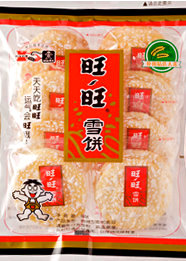
UOB KAY HIAN initiated coverage of China's food and beverage (F&B) sector, saying it is "time to be selective."
“In the wake of food safety issues, Chinese consumers have moved on from making do with basic necessities to focusing on product quality. We expect this trend will extend to lower-income earners residing in lower-tier cities and rural areas as wages rise, which should open up growth opportunities for F&B processors,” the research house said.
However, soaring demand for safer, higher-quality products is also putting pressure on the entire food supply chain to upgrade, it added.
“Thus, the industry is now faced with the task of raising the bar on food quality even as rising costs are exerting downward pressure on margins. Scalable distribution will be key to future growth.”
To achieve economies of scale and operating efficiency, companies have expanded their market reach by beefing up their distribution networks, mostly through the expansion of third-party distributor networks as China still lacks an efficient nationwide logistics system.
This is particularly true in rural areas, where a lack of infrastructure makes it costly for companies to sell directly, given rural consumers’ weaker spending power. However, reliance on third-party distributors is not without its shortcomings.
“A lack of control over the wholesale channel can result in oversupply, pricing arbitrage by distributors and product misplacement as companies lack direct knowledge of their end consumers.
“As Chinese consumers are still evolving from a need basis to becoming more selective with regard to food consumption, we think China is still far from becoming a brand-driven market,” UOB said.
Rather, the research house said product availability and ease of access to products are the key to capturing rising consumer demand.
“Thus, we believe distribution capabilities will continue to be vital to F&B companies.
“Category expansion strengthens market position. Category expansion will help to enhance market reach while giving processors the ability to adjust product mix in times of cost inflation.”
This is a long-term attribute that will separate the wheat from the chaff as broader product offerings will enhance a processor’s brand franchise.
“This in turn will give F&B companies the pricing power to counter cost headwinds.”

Photo: Tingyi
Pricing power matters.
“We expect industry consolidation to accelerate as costs escalate and government regulations tighten on quality controls.
“We like companies with proven pricing power and room to benefit from future sector consolidation. Even in sectors with relatively high growth, we think there are still opportunities for growth as we expect the trading up trend to hold,” UOB said.
Companies with pricing power should be able to grab more market share as the industry consolidates, while passing on additional costs to the market.
“Tingyi Holdings (HK: 322) is our top pick. We initiate coverage on Tingyi with a ‘Buy’ call and a target price of 27.00 hkd based on 28.9x 2013F PE on a par with its historical average trading multiple,” UOB said.
It said it thinks that with its extensive and scalable distribution network, Tingyi will be a key industry consolidator.
“We further believe that the Pepsi alliance will bring Tingyi a significant competitive advantage while near-term earnings contributions are likely to be minimal.”
UOB expects Tingyi to regain earnings growth momentum as it reaps benefits from category and geographic expansion. We project a net profit CAGR of 23% over 2011-14, driven by sales CAGR of 26% and gross margin of 29.7-30.0%.
Uni-President China (HK: 220) is initiated with a “Hold” given "fair valuations."
“While we are impressed with UPC’s achievements to date, we think that at 24x 2013 PE, the market has already captured UPC’s strong earnings growth prospects.

“We think that for the stock to further re-rate to higher levels to be on a par with industry leader Tingyi, UPC would need to demonstrate its ability to execute change on a larger scale,” UOB said.
Near-term catalysts are lacking, in the research house’s view, as UPC will need to expand its production capacity and build a nationwide distribution network before it can replicate the growth rates seen over the last two years.
UOB’s target price of 8.80 hkd on UPC is based on 23.1x 2013F PE, at a 20% discount to the target multiple for Tingyi.
Want Want China (HK: 151) is started with a “Hold” recommendation.
With the upward price adjustments on its flagship product rice crackers late last year, rice cracker sales volumes fell 10% yoy in 1H12, prompting management to lower its full-year guidance from 15-20% to 10-15%.
“We project Want Want to deliver an EPS CAGR of 24.5% over 2012-14, and think the recent share price rally has fully captured the key positives for the stock. That said, we continue to expect Want Want to pay out 70% of its earnings as dividends, which results in an attractive dividend yield of roughly 3%.”
The target price on Want Want is 10.83 hkd based on 26.9x 2013F PE, on a par with its average historical trading level.
“Lastly, we retain our contrarian ‘Sell’ call on China Mengniu (HK: 2319) as we think that dairy consumption in China is slowing while Mengniu’s vertical integration will drag on its margins and returns,” UOB said.
The research house does not expect Mengniu to generate earnings growth similar to what was seen in 2005-08 when EPS CAGR was 43%.
The target price is 19.70 hkd.
See also:
FOOD FOR THOUGHT: WANT WANT, TINGYI Noodle Blue-Chip Bound
Food Firms WANT WANT, YURUN, TINGYI: Buy Or Sell Them?







